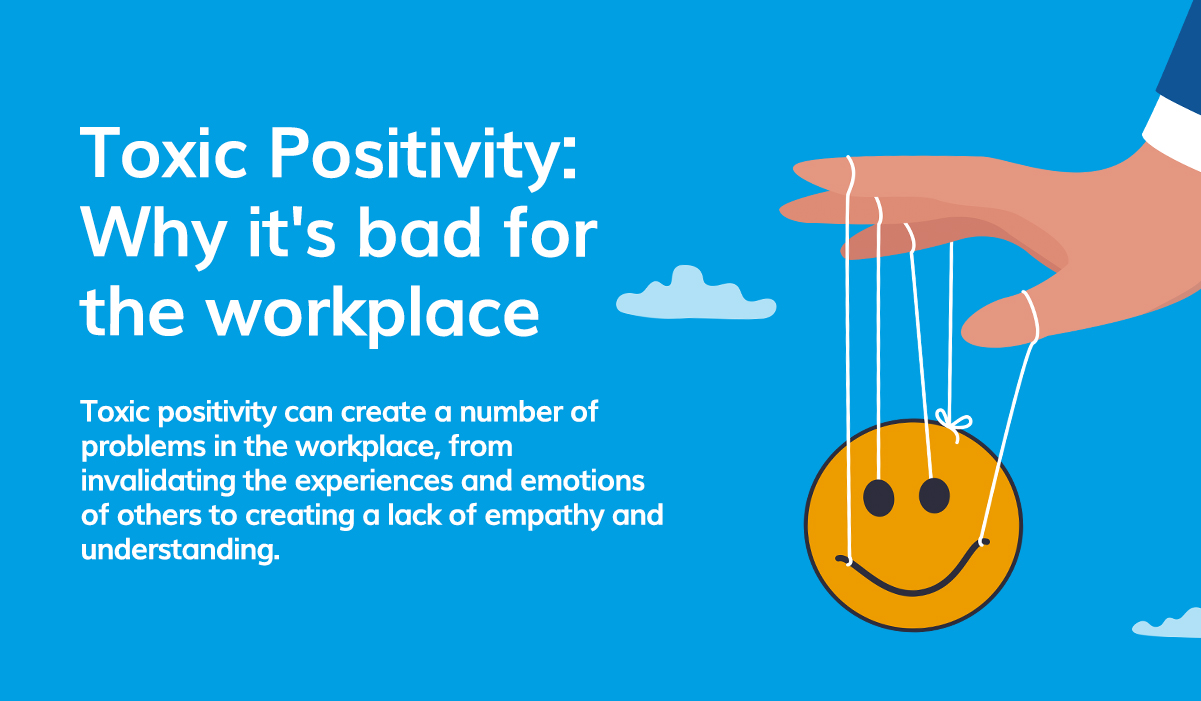In today’s society, there is an emphasis on being positive and happy all the time. While positivity can be a good thing, it can also be taken too far, creating a culture of toxic positivity. This can be especially prevalent in the workplace, where people may feel pressure to always present a positive and upbeat attitude. Turns out, you can have too much of a good thing.

Toxic positivity can create a number of problems in the workplace, from invalidating the experiences and emotions of others to creating a lack of empathy and understanding. In this article, we will explore the concept of toxic positivity in the workplace, its negative effects, and ways that employers can address it to create a more supportive and empathetic workplace.
What is toxic positivity?
Toxic positivity is a term that describes the notion of always looking on the bright side, regardless of the situation. This is especially prevalent in the workplace, where people may feel pressure to present a positive and upbeat attitude at all times. While positivity can be a good thing, toxic positivity can create problems and lead to a toxic work environment.
The negative effects
One problem with toxic positivity is that it can invalidate the experiences and emotions of others. If someone is going through a difficult time or facing a challenge at work, being told to “just be positive” can come across as dismissive and uncaring. This can make people feel like their feelings and experiences are not valued, which can lead to resentment and disengagement.
It can create also create a culture where people feel like they can’t express their true emotions or talk about challenges. If the expectation is always to be positive and happy, it can be difficult for people to speak up and share their concerns or struggles. This can lead to a lack of communication and collaboration, which can impact productivity and morale.
Toxic positivity can also lead to a lack of empathy and understanding. If everyone is expected to be positive all the time, it can be difficult for people to relate to others who are going through a tough time. This can create a sense of isolation and disconnect, which can impact mental health and wellbeing.
Addressing toxic positivity in the workplace
So, how can employers address toxic positivity in the workplace? One solution is to create a culture that allows for open and honest communication about emotions and challenges. This can include encouraging employees to share their experiences and struggles and providing support and resources to help them cope. It’s also important to recognize and acknowledge the experiences and emotions of others, rather than dismissing them or trying to “fix” them with positivity.
Creating a culture of empathy and understanding
In conclusion, while positivity can be a good thing, excessive and forced positivity in the workplace can create problems and lead to a toxic work environment. It’s important for employers to recognize and address this issue, and create a culture that values open and honest communication about emotions and challenges. By doing so, they can help create a more supportive and empathetic workplace that benefits everyone.
Do you have any thoughts you’d like to share or thoughts on this subject? Share your thoughts with the KMP community by clicking here.

